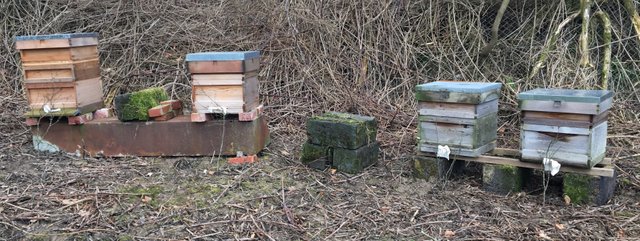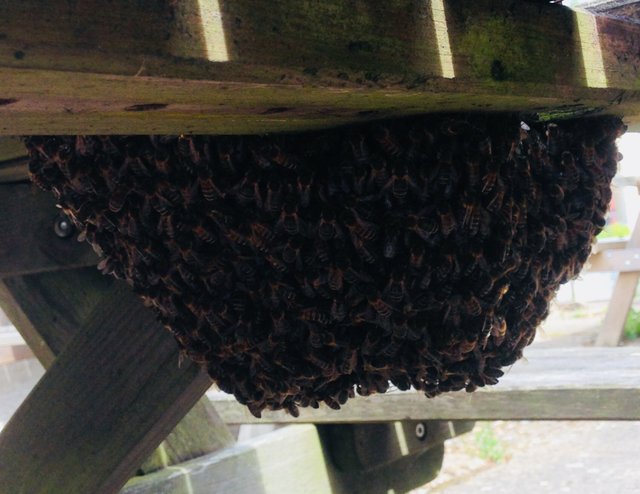The Winter Beekeeper
Bees in winter...where do they go? What do they do?

Have you ever wondered this? Let me tell you a bit about the winter from a bee’s perspective.
The usual lifespan of a bee in summer is just a few weeks. They live short but extremely active lives collecting pollen and nectar and performing their allotted tasks in the hive.
In winter, the bees generally live much longer, up to 3-4 months. Winter bees are bigger, fatter and physiologically different from their summer counterparts, because they lead a very different life. Where summer bees are all about racing to bring in the supplies to the hive, creating honey and doing the ’hivework’, winter bees are ALL about keeping the Queen warm. The bees ‘cluster’ together for the colder weather, keeping the Queen at their centre. They use the honey stores to feed the Queen and themselves and most of their energy is dedicated to maintaining the hive at a constant temperature of 92 degrees Fahrenheit, whatever the weather outside. They do this by ‘shivering’ their wing muscles. They gradually move through the hive as a cluster, using the honey stores as they go.
So, what does the beekeeper do in winter?
My primary job is to check the bees have enough stores for the winter. I leave my bees with as much honey as I think they will need, but occasionally they get through their stores too fast, resulting in a famine in February or March. At this critical time, I check their supplies by ‘hefting’. This is simply lifting one edge of the hive an inch or two, to gauge the weight. If it feels light, I give them back some of the honey I took from that particular hive, always keeping a few jars in reserve for this purpose.
Other than that, I check the hives for damage, clean and prepare spare hives for the summer, and look forward to watching my bees fly again as the weather warms up!!

Picture doesn't seem to load @catherinesmith
I fixed it! x
@sallylloyd
@helixhomoepathy
@manxwitch